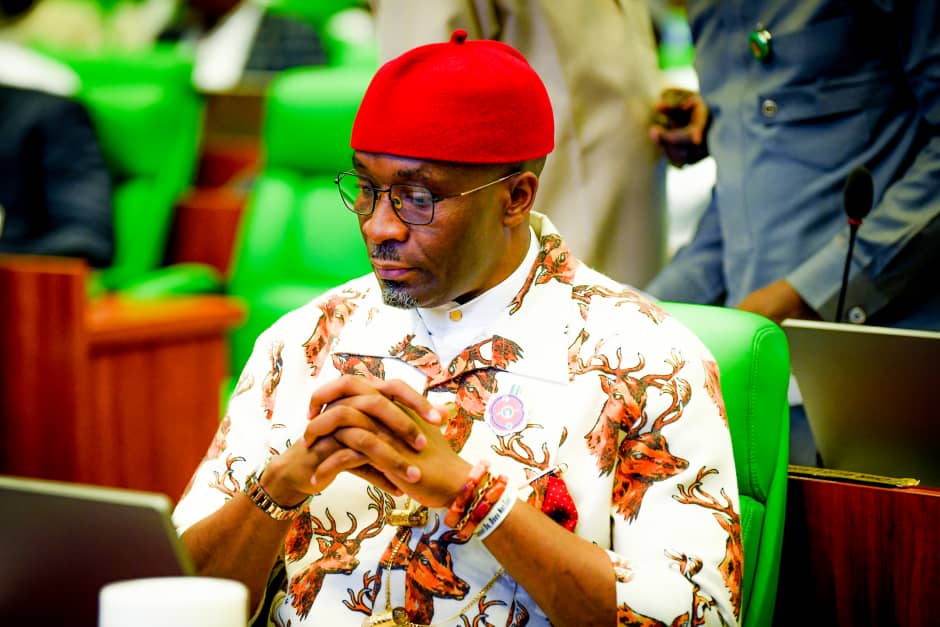Deputy Speaker of the House of Representatives, Hon. Benjamin Okezie Kalu, has announced that addressing the humanitarian impact of the recent flood disasters in Borno, Yobe, and Adamawa States in Nigeria’s North East region will require approximately $200 million. – Flood: Over $200m needed to tackle humanitarian impact in Borno, Yobe, Adamawa – Kalu tells AU
During a special session at the 12th Annual Conference of Speakers of National and Regional Parliaments at the Pan-African Parliament (PAP) of the African Union (AU) in Midrand, South Africa, Kalu highlighted the devastating effects of the floods. He noted that over one million people have been displaced in one of the affected states, with tens of thousands of families lacking shelter, food, water, and access to healthcare.
Flood: Over $200m needed to tackle humanitarian impact in Borno, Yobe, Adamawa – Kalu tells AU
He called upon the African Union and other international organizations to assist Nigeria in addressing the humanitarian crisis. In a solemn moment, the Parliament observed a minute of silence to honor the victims of the flood disaster.
Kalu emphasized that flooding is a significant consequence of climate change in Africa that requires urgent attention. He informed fellow African leaders that this tragedy has severely impacted both the economy and infrastructure of the affected states and Nigeria as a whole.
Kalu stated:
“It is evident that throughout our continent, the losses incurred due to climate change are immeasurable, but the loss of life is particularly devastating. Whether in Nigeria, Mali, or elsewhere, we witness our brothers and sisters mourning those lost to the effects of climate change.”
He continued:
“Nigeria is currently experiencing one of the most challenging periods in our history. In remembrance of those we have lost due to climate change, I respectfully propose that as leaders of this continent, we observe a minute of silence for the deceased.
“This discussion sheds light on our real experiences with climate change. We are feeling its effects globally, and Africa is no exception. Recently, Nigeria faced climate change-induced flooding that affected Borno, Yobe, and Adamawa states. This humanitarian crisis has significantly damaged our infrastructure and economy.”
Kalu explained that from August to September, torrential rains and the breaching of major dams led to severe flooding, causing widespread destruction in communities already grappling with social and economic challenges.
He remarked:
“This particular flood has displaced over one million individuals in one state, leaving tens of thousands of families without shelter, food, water, and access to healthcare. The consequences of climate change extend beyond displacement; they also include job losses and agricultural devastation, crippling local businesses in these regions. Additionally, critical infrastructure has been destroyed, including key roads and bridges. The impact on education is substantial, as many centers are being used as IDP camps to shelter displaced individuals.”
Kalu estimated that the humanitarian response to this flooding will require around $200 million to restore the affected areas.
He further questioned:
“How is the AU ensuring a coordinated response to climate change-induced crises like the recent flooding in Nigeria? Are there specific intervention frameworks established for mobilizing resources for member states facing climate-related disasters like Nigeria? This is my call for assistance, raising awareness about the situation in Nigeria. We currently have a disaster zone that requires all hands on deck, including support from the AU and international organizations.”
In a related matter, Kalu responded to a presentation on the challenges hindering the achievement of the Africa Free Trade Agreement (AfFTA) goals. He advocated for the elimination of various bottlenecks:
“There are significant challenges obstructing the success of the Africa Free Trade Agreements. One issue I’ve observed is the overlapping memberships in regional economic councils. If we do not address these bottlenecks, they will hinder our intended achievements. Additionally, trade adjustment costs pose another challenge, as transitioning to a single African market necessitates significant adjustments within national economies.”
He concluded:
“This is a bottleneck we must overcome. Furthermore, how can we build the capacity for domestication? As you have rightly pointed out, members may struggle to promptly incorporate these protocols into their national laws and policies.”
Flood: Over $200m needed to tackle humanitarian impact in Borno, Yobe, Adamawa – Kalu tells AU
Thank your for reading this article. For more article line – Flood: Over $200m needed to tackle humanitarian impact in Borno, Yobe, Adamawa – Kalu tells AU. Please, visit our blog

